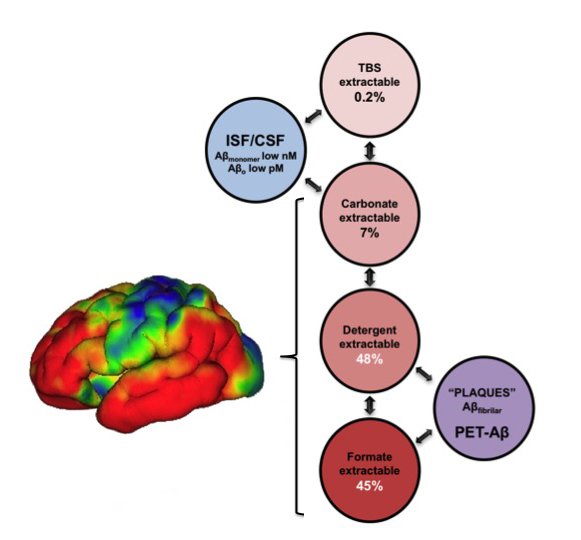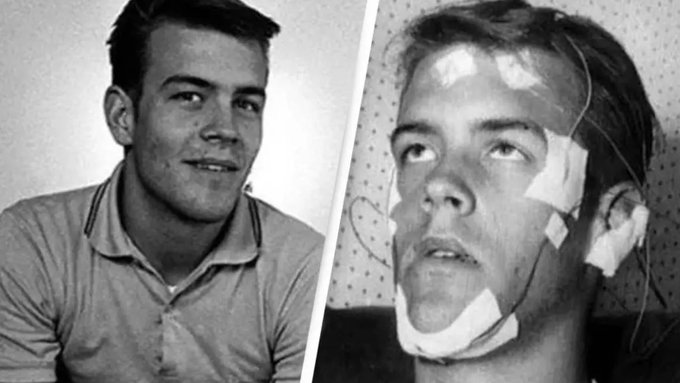Do you ever feel like your waking hours are over too fast? Imagine if we could spend more time doing the things we love by dropping one inconvenient habit, the need to sleep. What does sleep even do, besides stopping us being grumpy and tired? And what would happen if you stopped sleeping altogether? Let’s investigate!
Humans spend about
one third of their lives catching z’s. You may think of sleep as a time when your mind and body simply shuts off for a few hours. In reality, sleep time is a surprisingly active period which allows for essential processing and regeneration. Scientists are still figuring out why humans are programmed to need such lengthy rest periods to function optimally, but it’s vital for both mental and physical health. Indeed, sleep is so vital that a severe lack of it can be incredibly harmful, even fatal. The most immediate value of sleep is what it does for our cognitive abilities. While we’re awake and going about our day, busy neurons in the brain produce a by-product called adenosine. The buildup of adenosine in the brain is one factor that leads to our perception of being tired, as it slows down neurons. During sleep, the body has a chance to clear this adenosine build-up from the system, and as a result, we feel rested and alert. And if you ever wondered why coffee gives you that amazing afternoon kick, caffeine temporarily prevents adenosine being absorbed by neurons, reducing the feeling of tiredness.

But our need for slumber goes a lot deeper than avoiding sleepiness.
A 2013 study led by Professor Maiken Nedergaard at the University of Rochester discovered a network of microscopic, fluid-filled channels in rats’ brains that flush out waste chemicals, like the aforementioned adenosine, using cerebrospinal fluid. This process occurs mostly when the brain is in sleep mode. These channels have been named the “glymphatic system” and they play a key role in clearing out waste, so the brain can function at an optimal level. Nedergaard’s rat experiments revealed just how important this waste removal is. When repeatedly deprived of sleep, the rats lost all immune function and died in just a matter of weeks. Seeing as we also possess a glymphatic system, evidence suggests that the effects of sleep deprivation on us humans could be very similar.

We'll cover the story of a man who did stay awake for almost a fortnight. But first, we need to understand what not sleeping does to us. Not sleeping enough, or only sleeping poorly, has numerous repercussions for both physical and mental wellbeing and has been the focus of countless studies. In
one comprehensive study, published in 2007, British researchers investigated how changing sleep patterns affected the mortality of more than 10,000 male British civil servants over the course of two decades. The patterns found in the results were shocking. The results showed that, statistically, those who had cut their sleep from seven to five hours or fewer per night more than doubled their risk of death from all causes. But the question is: why?For starters, a lack of sleep has noticeable effects on the body’s hormones. A
study published in 2002 suggests that many men with sleep apnea also have low testosterone levels. Sleep apnea, responsible for snoring, disturbs the flow of oxygen to the brain, leading to a disrupted, restless sleep pattern.
Fragmented sleep disrupts the release of testosterone within the brain, and men who sleep fewer than 6 hours a night have a testosterone level equal to someone 10 years older. So, if boys want to grow big, bearded and virile, they have to get 8 hours of sleep!But returning to the land of dreams, or lack thereof, issues with sleep can often be part of a complicated tangle of problems. The most common sleep disorder, insomnia, has rigid ties to mental health issues. In
a 2007 study of 10,000 people, those with insomnia were five times more likely to develop depression as those without. In the same study, people with insomnia were 20 times more likely to develop ‘panic disorder’, a type of anxiety disorder characterized by panic attacks. Flipping the pillow,
a 2005 poll by the National Sleep Foundation found that people who were diagnosed with depression or anxiety were more likely to sleep less than six hours at night. While a good sleep cycle is needed, for these people, a vicious cycle is the reality.
But it gets worse; the mental symptoms can eventually be deadly. In his book, “Why We Sleep”, Professor Matthew Walker of the University of California explains how a lack of sleep inhibits the brain’s ability to create long-term memories. While this isn’t great to begin with, there are more serious memory-related effects to long-term sleep deprivation. Worst of these is the connection to the development of Alzheimer's Disease. The ability to form memories is hampered by the buildup of the toxic protein, ‘beta amyloid’, which accumulates in the brain increasingly the less sleep a person has. The more beta amyloid in the brain, the more neural pathways become blocked. Eventually, they stop firing altogether.
But the alarming figures don’t stop there. According to Professor Walker, if you receive 6 hours sleep or fewer nightly, you’re 200% more likely to suffer a fatal heart attack or stroke in your lifetime. What’s more, after just one night of under 5 hours of sleep, there’s a 70% reduction in critical anti-cancer immune cells referred to as natural killer cells. Basically, every sleep scientist around the world strongly suggests that you get more shut-eye. But don’t panic, you have the power to sleep more. Assuming you don’t have severe insomnia, it’s actually one of the easiest positive changes you can make in your life! That’s pretty cool, right? The fact that you can potentially save your own life, by basically doing nothing more often? You just need to resist the pull of late-night internet, which is easier said than done.

But seeing as you’re here, why don’t we explore what would happen if, for some reason, you stopped sleeping entirely? We know what happens with sleep deprivation in the long run. Not getting enough sleep equals really bad. But the effects of no sleep at all, ever can get pretty crazy. For this thought experiment, let’s take it one sleepless chunk at a time. Scientists have repeatedly investigated exactly how long humans can go before feeling the effects of sleep deprivation, and the timeline is surprisingly short. After just 16 hours of being awake, mental and physical deterioration starts to set in. In case you didn’t do the math, this is why the optimum sleeping time, on average, is 8 hours. The more you know.
According to
a 2000 article in the Journal of Occupational and Environmental Medicine, after 24 hours of being awake, your mental capacities are so impaired that your driving skills are comparable to someone who is legally drunk. Maybe it’s time to take those rest stop warning signs a little more seriously? On top of a mild, tipsy delirium, you’d be overtired, easily amused and distracted. You might even feel giddy and full of nervous energy rather than feeling tired at all. This is because, at this stage, your brain tries to compensate for the lack of sleep by increasing dopamine levels. After 48 hours, you’ll be forced to say goodnight to that nervous, dopamine-fueled energy and begin to feel extreme fatigue. This is because your body loses the ability to metabolize glucose, which is responsible for your energy levels. You begin to feel clumsy and forgetful, and you may have impaired hand-eye coordination. According to a 2018 study from the Journal of Attention Disorders, you may even
struggle to interpret people’s facial expressions. So, obviously, poker is off the cards.
If you continue to resist proper sleep, the body will start to experience “microsleeps”. These are periods of light sleep that can last between half a second and half a minute. During these “microsleeps,” parts of the brain undergo a drop in activity, while others remain functional. Because of this, you’ll often continue performing a task, but you’ll lose consciousness, often without even realizing it. These events happen involuntarily and often lead to disorientation. These unnerving lapses are a frighteningly common factor in car accidents.The regulation of your hormones is also dependent on sleep, and not sleeping for this amount of time causes mood swings and highly emotional states. After 72 hours, thing start to get really weird. Otherwise-stable people can begin to experience symptoms similar to those seen in schizophrenics.
Hallucinations, both auditory and visual, become commonplace at this stage, only adding to the substantial amounts of stress and disorientation you’ll already be feeling. But according to Dr. Mark Mahowald, director of the Minnesota Regional Sleep Disorders Center, evidence suggests that
sleep-deprived ‘hallucinations’ might not be hallucinations at all.

The hallucinations may, in fact, be dreams, bleeding out into reality as exhaustion blurs the line between waking and sleeping. Mahowald notes the similarities between these hallucinations and those sometimes experienced when people are awoken from deep sleep, suggesting they may be linked. Darker theories surrounding the hallucinations suggest that they may be a sign of a deep-rooted psychosis within us all, bubbling under the surface of the human psyche. This has yet to be authenticated, thankfully.From this point on, things get serious. Having been deprived of its essential processes, sapped of the ability to convert glucose into energy effectively, the body will start to break down and consume itself as if you were starving. Your body uses up any energy sources it can find, such as fat, muscle, tissue, and glucose. Muscle degradation may cause uncontrollable tremors and aches. For your foreseeable, sleepless future, things will continue to degrade in much the same fashion. Let’s fast forward to around two weeks without sleep. We have very little evidence of what happens to humans at this stage of sleep deprivation. Two sleepless weeks is the point at which rats in studies usually die, but it is unclear if this is caused by the lack of sleep or the stress of being constantly forced to stay awake.We do have something to go on, though. In 1965, 17-year-old American student Randy Gardner set the longest officially-documented record for staying awake without any stimulants. He didn’t sleep for 264 hours, that’s
11 full days, just because he was curious to see how he would cope.
His physical senses deteriorated quickly, losing the ability to focus or identify items by touch. He also experienced hallucinations, aggressive mood swings and forgetfulness. Amazingly, he recovered without any long-term psychological effects, and even gave a very lucid public speech at the end of his experiment, but that doesn’t make it safe to try. Let’s jump forward again. Unfortunately, there are no officially documented cases of anyone willfully surviving more than two weeks without a proper sleep, though some claim to.The most widely-reported case is that of a
Vietnamese man named Thái Ngọc. He claims that he has not slept in over forty years since he came down with a severe fever at the age of 31. He insists that he has suffered no physical discomfort and remains active even though he is now elderly, although he also said he began to feel like a plant without water due to his insomnia.
Considering the effects of insomnia on the body and brain, depriving it of vital cycles and replenishment, a wilting plant seems a fitting analogy. But amazingly, doctors who have examined him say he’s in good health, bar some liver damage from years of useless sleeping pills. Ngoc has never been the focus of a long-term study, but some scientists suggest microsleeps may be responsible for his survival. But not all cases of long-term sleeplessness are so upbeat. Of the few official examples of people going permanently without sleep, most are victims of
Fatal Familial Insomnia. This horrendous condition is caused by genetically-mutated proteins in the brain, called prions. Over time, these erode the neural pathways which allow the brain to sleep.Regardless of how hard they try or what medication they use, sleep is impossible for sufferers of the disease. They descend into frequent panic attacks, paranoia, hallucinations and eventually dementia. Meanwhile, rapid weight loss occurs, and organs begin to shut down. The disease kills within about 18 months; there’s no known cure and no way to slow the progression. How do those sleep scientists expect us to sleep more when we’ve got Fatal Insomnia to worry about?I hope you were amazed at what happens when you stop sleeping! Thanks for reading.






















